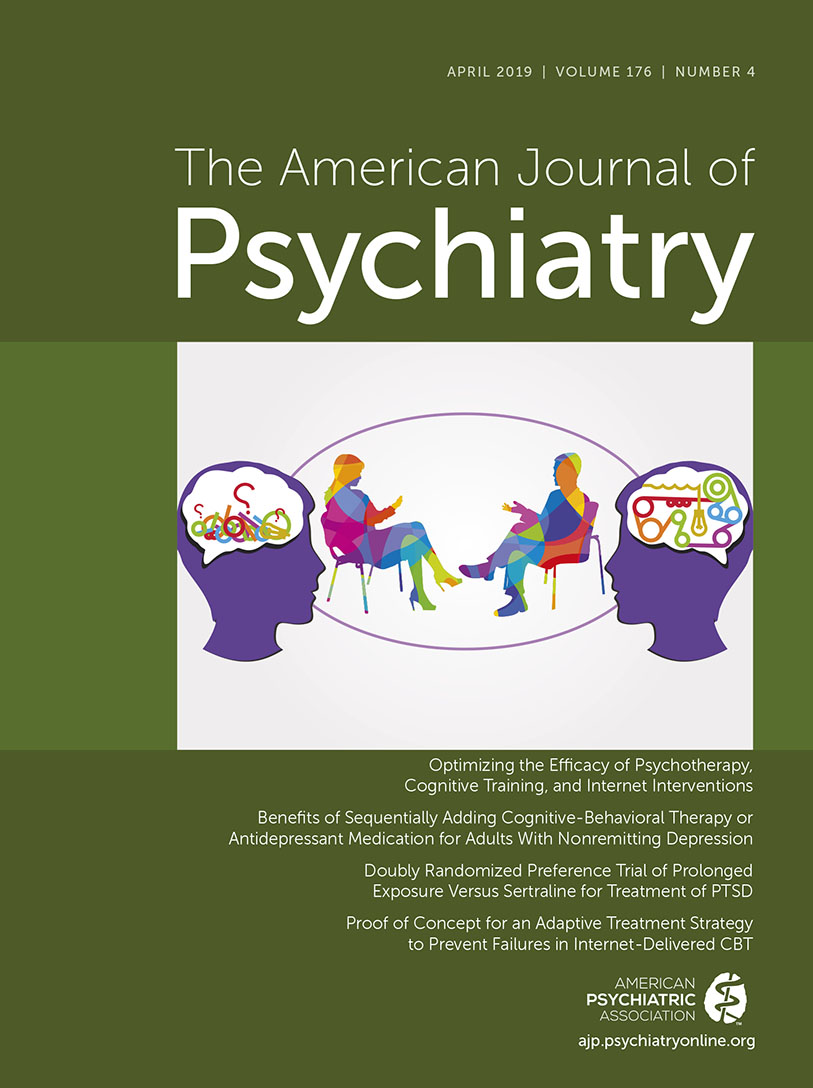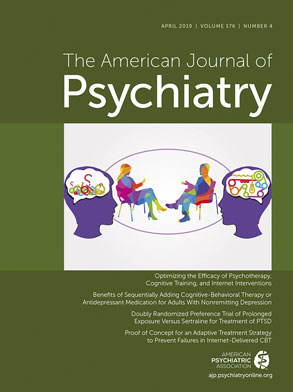The first thing that strikes me with respect to these two literatures is the greater focus on relapse (the return of the treated episode) and recurrence (the onset of wholly new episodes) in the depression literature and the relative lack of attention to this issue in the treatment literature on PTSD. If and when antidepressant medication is efficacious in the treatment of depression, it only works for as long as it is taken, and symptom return is a common and concerning issue. Patients treated to remission with CBT are less than half as likely to relapse after treatment termination as patients treated to remission with antidepressant medication (
8). Although I am no expert when it comes to PTSD, from what I have seen, there is little attention to this issue in the PTSD literature, although perhaps there should be. CBT has rarely been compared with antidepressant medication in the treatment of PTSD, but in one relevant study trauma-focused therapy (in this instance, eye movement desensitization and reprocessing) had an enduring effect not found for antidepressant medication (
9). Relapse and recurrence are common in depression (prior exposure to CBT cuts their rates by more than half but does not eliminate them altogether), and they would appear to be problematic with respect to PTSD after termination of antidepressant medication but seem rarely addressed in this literature (patients were kept on antidepressant medication for the duration of the follow-up in the Zoellner et al. PTSD study). The question is whether trauma-focused CBT for PTSD actually eliminates the risk for the return of symptoms after treatment termination. The initial indications (both from the study just cited [
9] and from the Zoellner et al. study] are that it might. That is incredibly important if true, and it deserves to be pursued in further CBT/antidepressant medication comparisons that follow remitted patients after treatment termination. It is possible that trauma-focused CBT has an enduring effect lasting beyond the end of treatment that is not found with antidepressant medication, which appears to be merely symptom suppressive, as is the case in depression. It also could point toward an underlying difference in the nature of the two disorders that would be important in its own right but for different reasons (depression may be inherently recurrent, whereas PTSD is the consequence of some intervening event that no longer holds sway once that consequence is addressed). Freud was first to note that the essence of depression (and the thing that separates it from grief) is the diminished sense of self (negative self-concept) that often predates the onset of the disorder (
10). While treatment may succeed in turning back the symptoms, anyone who has ever been depressed is at three to five times greater risk of becoming depressed again than someone who has never been depressed (
11). If someone is prone to self-doubts, those beliefs go with them into every situation and can be triggered by any reversal of fortune in life, usually involving either love or work. PTSD is always triggered by some external event that happens to someone. Patients may take it to heart, but it is not the essence of the self. I have heard it said by trauma-focused therapists that although their patients can be traumatized again, once a given trauma is adequately treated, the symptoms typically do not come back in the absence of new trauma.
The second thing that strikes me is the lack of specificity in our psychological treatments of response to depression, in that spontaneous remission and nonspecific processes account for the bulk of the acute response to treatment among nonpsychotic patients (
12), as opposed to PTSD, in which treatment response (other than the symptom-suppressing response to antidepressant medication just described) is largely specific to trauma-focused treatment (
13). As above, it is not clear whether this is a consequence of patients (PTSD may simply differ from depression) or procedures (trauma-focused CBT for PTSD may simply cut “closer to the bone” than CBT for depression), but that is another question that deserves to be explored.

